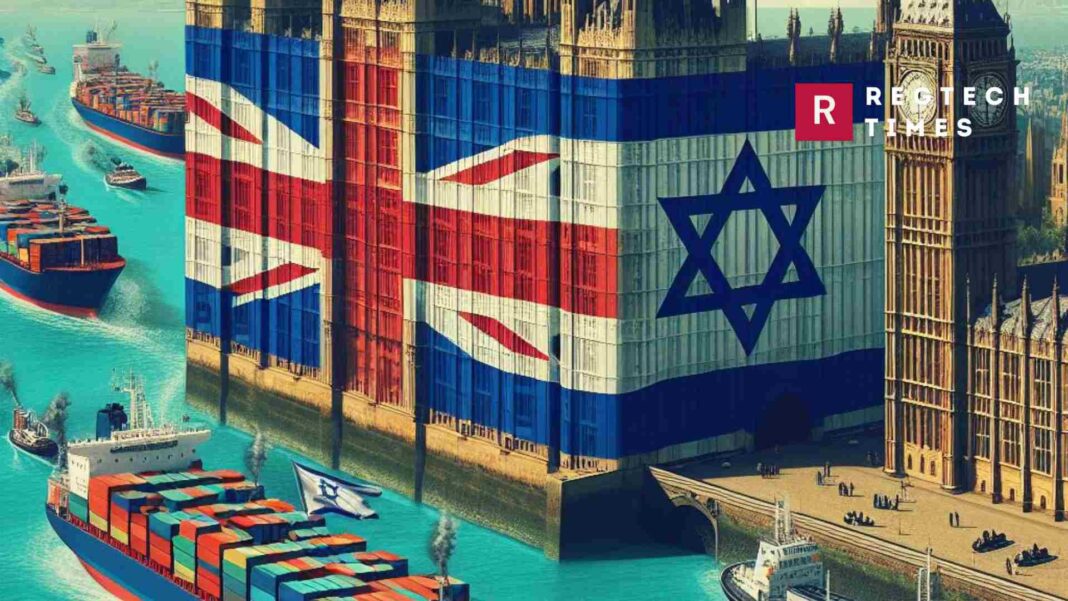Britain’s recent decision to impose sanctions on two Israeli groups and four individuals for their involvement in violence in the West Bank marks a significant step in addressing extremism.
In a move reflecting international concern over extremism, Hilltop Youth and Lehava, two hardline nationalist Israeli groups, have faced sanctions for their roles in promoting violence against Arab and Palestinian communities. The sanctions, imposed by various countries and entities, aim to curb their activities and prevent further escalation of tensions in the region.
Hilltop Youth: Catalysts of Illegal Settlements
The Hilltop Youth is a term used to describe a loosely organized and decentralized movement of young Israeli settlers who establish illegal outposts across the West Bank. These outposts are typically small, makeshift communities built on hilltops in the West Bank, often without official authorization from the Israeli government. The Hilltop Youth are known for their radical ideology, which emphasizes the Jewish connection to the land of Israel and opposes any form of territorial compromise.
Despite not being formally organized, the Hilltop Youth share a common goal of expanding Jewish presence in the West Bank, which they see as part of the historic Land of Israel. Their actions, although carried out independently, have a collective impact on the ground. By establishing these outposts, they aim to create facts on the ground that they hope will eventually become part of Israel’s permanent territory.
However, these actions have significant implications for the Israeli-Palestinian conflict and peace efforts in the region. The establishment of these outposts is considered illegal under international law, as the West Bank is recognized as occupied Palestinian territory. The expansion of these unauthorized settlements complicates efforts to reach a peaceful resolution to the conflict, as it creates obstacles to the establishment of a viable Palestinian state alongside Israel.
Moreover, the presence of these outposts often leads to tensions and clashes with Palestinian communities, as they are seen as a symbol of Israeli occupation and expansionism. The actions of the Hilltop Youth contribute to a cycle of violence and mistrust between Israelis and Palestinians, making it more challenging to achieve a lasting peace agreement.
Lehava: Inciting Violence and Intolerance
Lehava is a far-right Israeli group led by Benzi Gopstein, known for its extremist views and actions. The group’s name, Lehava, is an acronym for “Preventing Assimilation in the Holy Land.” Lehava has been involved in various activities that promote its nationalist and anti-Arab agenda, including organizing protests, distributing inflammatory materials, and advocating for discriminatory policies.
One of Lehava’s primary goals is to prevent intermarriage and assimilation between Jews and non-Jews, particularly between Jews and Arabs. The group views such relationships as a threat to Jewish identity and seeks to maintain what it considers the purity of the Jewish people. Lehava has been known to use intimidation tactics and harassment against mixed couples, often leading to tensions and conflicts in mixed communities.
You May Also Like
- US Set to Sanction Israel’s Netzah Yehuda Battalion for Human Rights Violations
- Turkey Imposes Sanctions on Israel Over Gaza Conflict
Lehava’s activities have drawn widespread criticism for inciting violence and promoting hatred against Arab and Palestinian communities in Israel. The group’s rhetoric and actions have been condemned by human rights organizations and political leaders for inflaming ethnic and religious tensions in the region.
Sanctions and Consequences
The sanctions imposed on individuals associated with these groups include financial restrictions and travel bans. Benzi Gopstein, Lehava’s leader, has faced significant repercussions, including the blocking of his entities and a ban on receiving a US visa. These measures aim to deter further extremist activities and hold individuals accountable for their actions.
US Sanctions on Russian Allies
The international community’s response to extremism in Israel underscores the importance of collective action in combating radicalization and promoting tolerance. With sanctions imposed by the US, EU, and other entities, there is a concerted effort to address the root causes of violence and extremism in the region. The sanctions imposed on Hilltop Youth and Lehava signal a global commitment to combatting extremism and promoting peace and stability in the Middle East. By targeting individuals and groups involved in inciting violence and intolerance, the international community aims to uphold fundamental values of human rights and coexistence.



